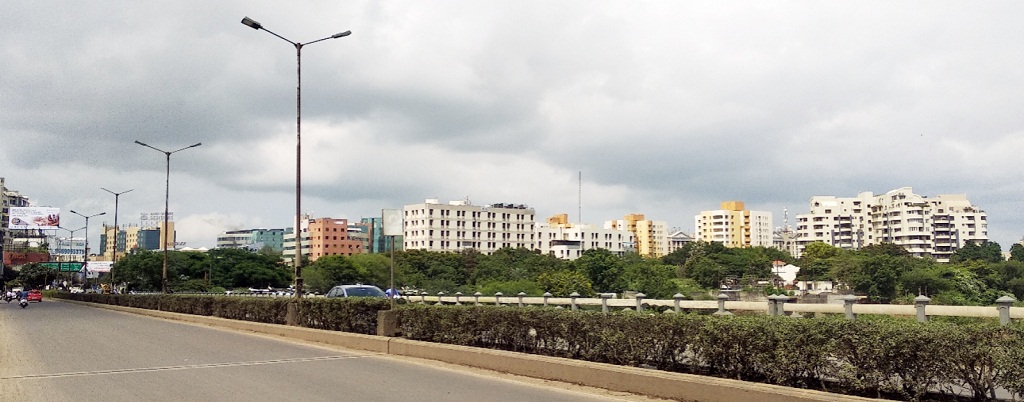NAREDCO Calls For Foreign Investments; Projects USD 8 Billion Capital Inflows Expected In Indian Realty Sector In Next Fiscal

Mumbai, November 25, 2020: After the affordable rental housing policy, the Government is now eyeing to push the growth of affordable rental housing segment by modifying the age-old Tenancy Act by implementing the new Model Tenancy Act by removing the complexities and restrictions on the existing rent control laws to increase the supply of affordable housing, announced Durga Shankar Mishra, Secretary, Ministry of Housing and Urban Affairs, Government of India today at the inauguration of NAREDCO’s three–day virtual ‘Real Estate and Infrastructure Investors’ Summit (REIIS) – 2020’ in association with APREA. “This will bring a new wave of affordable rental housing”, he noted.
He further stated that the new Act once implemented across the States would release over one crore vacant houses locked in the clutches of the old Act and promote investments into the real estate sector. Calling the pandemic – induced reforms to be a great booster, he informed that a slew of measures taken by the Government such as liquidity infusion, Housing For All, affordable rental housing policy, stamp duty reduction across the States, revision of the Circle rates and income tax reliefs have opened up avenues for fresh investments into the sector. He advocated the need for implementing global housing technologies to make housing more affordable and environment-friendly to achieve the dream of Housing For All.
NAREDCO and Asia Pacific Real Estate Association (APREA), a leading pan Asian trade association with a focus on cross-border real estate investment, along with Anarock Property Consultants, have organised the virtual ‘Real Estate and Infrastructure Investors’ Summit (REIIS) – 2020’ with the theme of ‘India – Opportunities in the Coming Year’.
Ashok Mohanani, president NAREDCO Maharashtra in his welcome address, said, “The real estate sector is on a growth mode, post-pandemic. We are expecting a quantum leap in home buying due to the cooling home loan rates, the best ever residential housing prices and the zero stamp duty bonanza by the developers. The home loan structure has been supportive across ticket sizes and the Government’s initiative like the SWAMIH fund, liquidity infusion reforms, stamp duty reduction have accelerated housing demand, which in turn, will encourage foreign investors revising their outlook on the sector.”
Attributing the revival of the real estate sector mainly to the Government’s reforms and visionary decisions like a complete waiver of the stamp duty, Rajan Bandelkar, Vice Chairman, NAREDCO Maharashtra said, “The sector needs more liquidity and wholesale lending by the financial institutions for further growth. While futuristic steps like levying a zero-stamp duty have accelerated demand from the homebuyers, the banking industry should infuse more funds in viable affordable housing projects and allow restructuring of loans for sustainability.”
Terming India as a bright spot for real estate investment, Sigrid Zialcita CEO, Asia Pacific Real Estate Association (APREA), said, “The year 2021 will be a better year for economic growth for India, as it will bring economic and capital revival due to the Government and the Central Bank’s support to the realty sector. With the demand picking up, we expect greater participation from institutional investors and the REITs sector in India will also grow.”
Rajeev Talwar, National Chairman NAREDCO opined that the Government must consolidate the affordable housing policy further to bring the Government, PSUs and slums lands for construction.
Niranjan Hiranandani, National President NAREDCO said, “The real estate sector must match the demand dynamics to be viable and sustainable. More liquidity and capital infusion in the sector need more streamlining in the supply side.”
The financial institutions echoed the Indian real estate’s ‘faster revival story’ and showed a bullish outlook while scouting for new investment opportunities, both in the residential and commercial real estate segments. Measuring the Institutional Investors’ appetite for Indian commercial real estate, said Chanakya Chakravarti, Managing Director India, Ivanhoé Cambridge, “Significant funding transactions in the last three months are a sign of confidence of global funds. The office realty segment will see some disruptions in the coming days. The investors will now look for a longer stay to bring more capital into the sector.”
Ashish Singh, Partner Real Estate, Actis, noted that the post GST era had created a large proportion of capital to bring the sector out of a negative yield territory. He predicted that the office segment will become a matured asset class of yield for the investors.
NAREDCO has pegged the substantial amount of foreign investment flows into the Indian real estate sector in the next two years. The Summit partner Anarock predicted USD 8 Billion capital inflows in the Indian realty sector in the next fiscal in the new asset classes like logistics and data centres.
Bringing back the homebuyers into the State’s residential real estate sector, NAREDCO Maharashtra has recently announced yet another spell of zero- stamp duty on housing sales until 31st December 2020. The decision will allow more homebuyers to buy affordable and luxury residential properties at the lowest ever prices during the pandemic. Over 1,000 projects have been listed by the NAREDCO Maharashtra members for sale under this scheme.
Shreekant, Chief General Manager, State Bank of India:
“The banking institutions like the State Bank of India are coming forward to lend the real estate sector. The sector is rebounding as the new launches are picking up and with the banking sector, large NBFCs and HFCs realigning their funding strategies, the sector’s cash flow will improve. The Q4 of this fiscal and the Q1 of the next fiscal will be better in terms of liquidity and the demand-supply dynamics.”
Rajiv Sabharwal, Managing Director & CEO, Tata Capital Limited, said, “The funding in the real estate will flow into those projects where there will be sales velocity. If there is enough financial capital in the sector, the entire ecosystem will automatically grow. The sector is witnessing clear signs of revival with the number of factors like liquidity flowing in the sector, low-interest rates, transaction cost coming down, developers too stepping in by offering good prices and homebuyers too realizing the importance of owning a home due to the pandemic. Now, the entire industry needs to come forward and assure that the revival continues and it’s just not a festive thing.”







